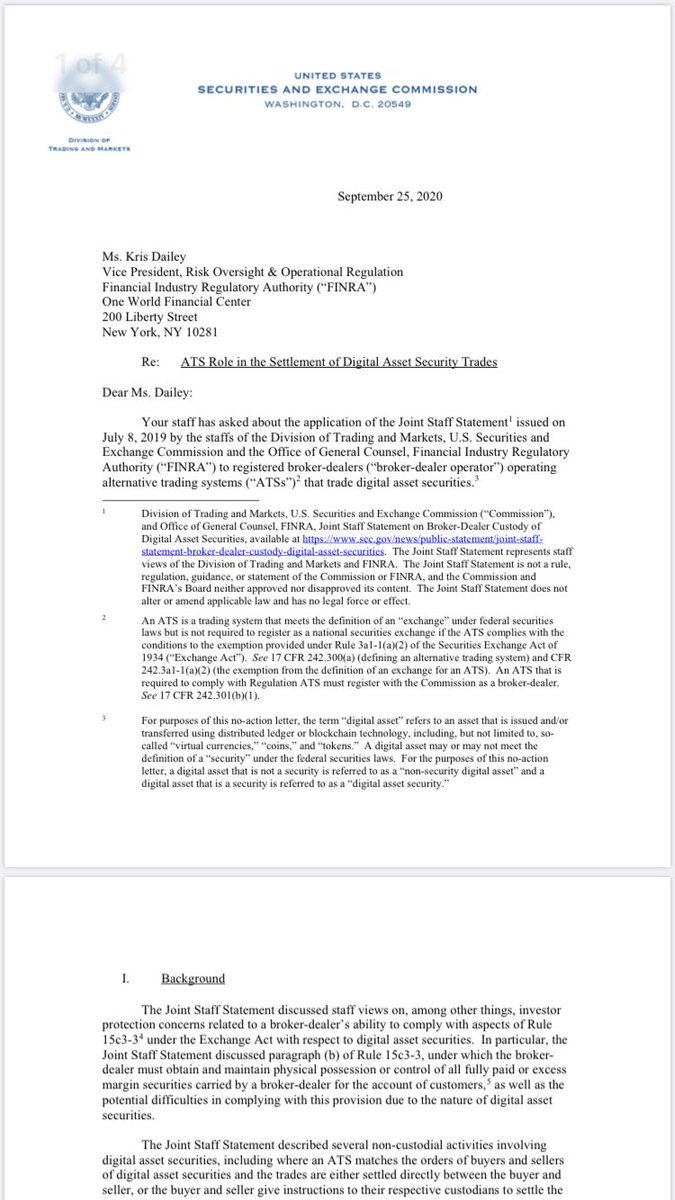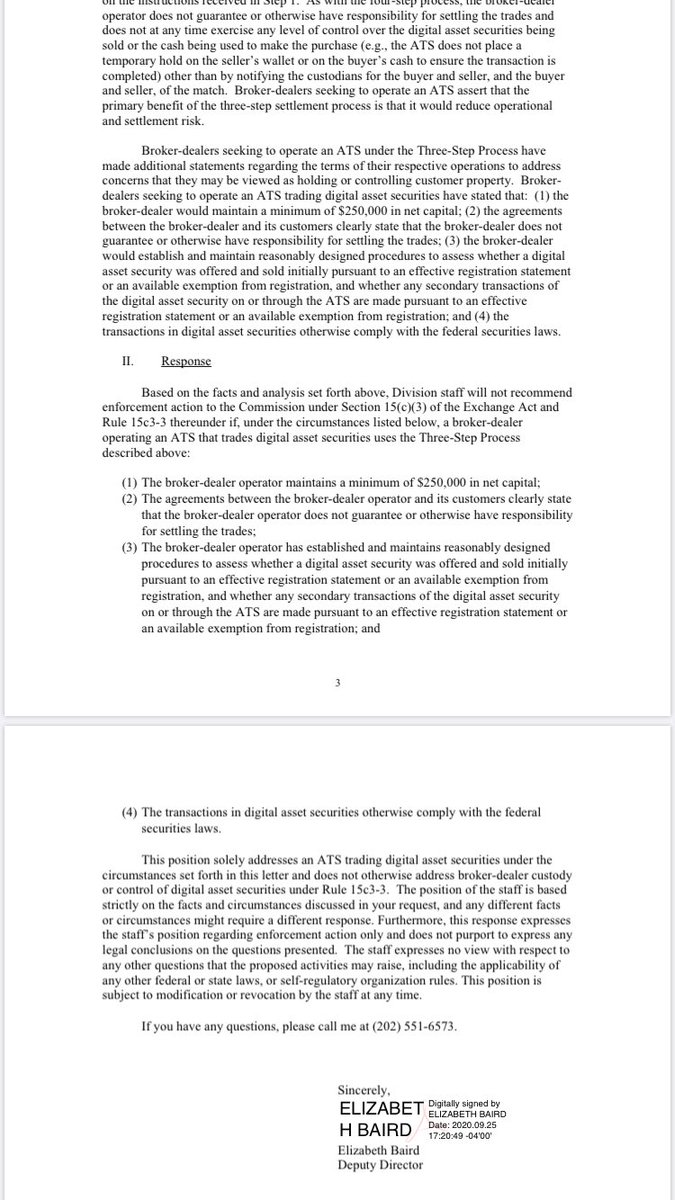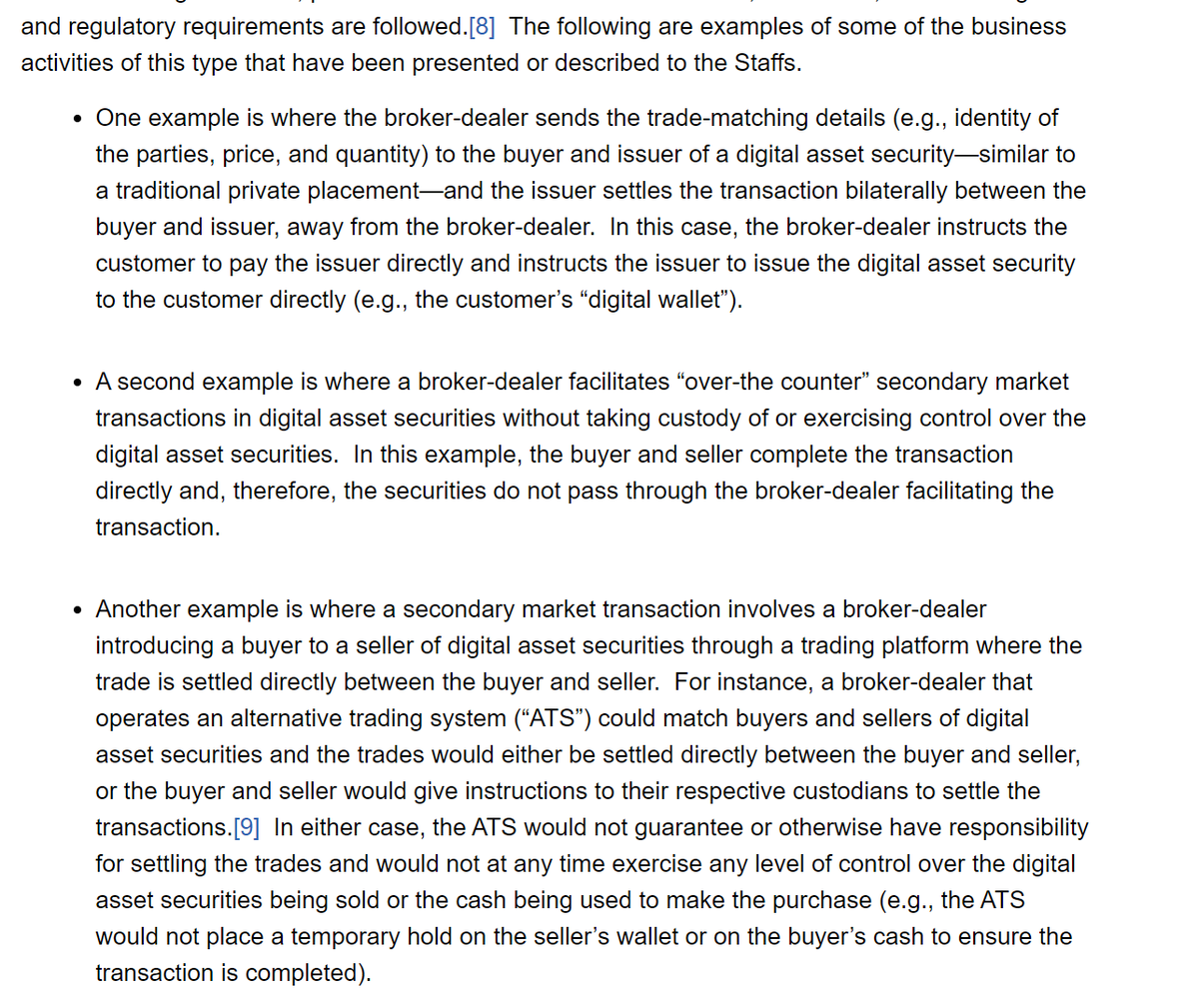
Commissioner @HesterPeirce announces her #token #safeharbor 2.0 sec.gov/news/public-st… #crypto #securities
released on #github. here's the link: github.com/CommissionerPe…
3 most significant changes: mandatory semi-annual updates to the plan of development disclosure and a block explorer; exit report requirement with analysis by outside counsel explaining why the network is decentralized or functional, or an announcement that the tokens will
be registered under the Securities Exchange Act of 1934. Third, the exit report requirement provides guidance on what outside counsel’s analysis should address when explaining why the network is decentralized- Using a flexible test
• • •
Missing some Tweet in this thread? You can try to
force a refresh











